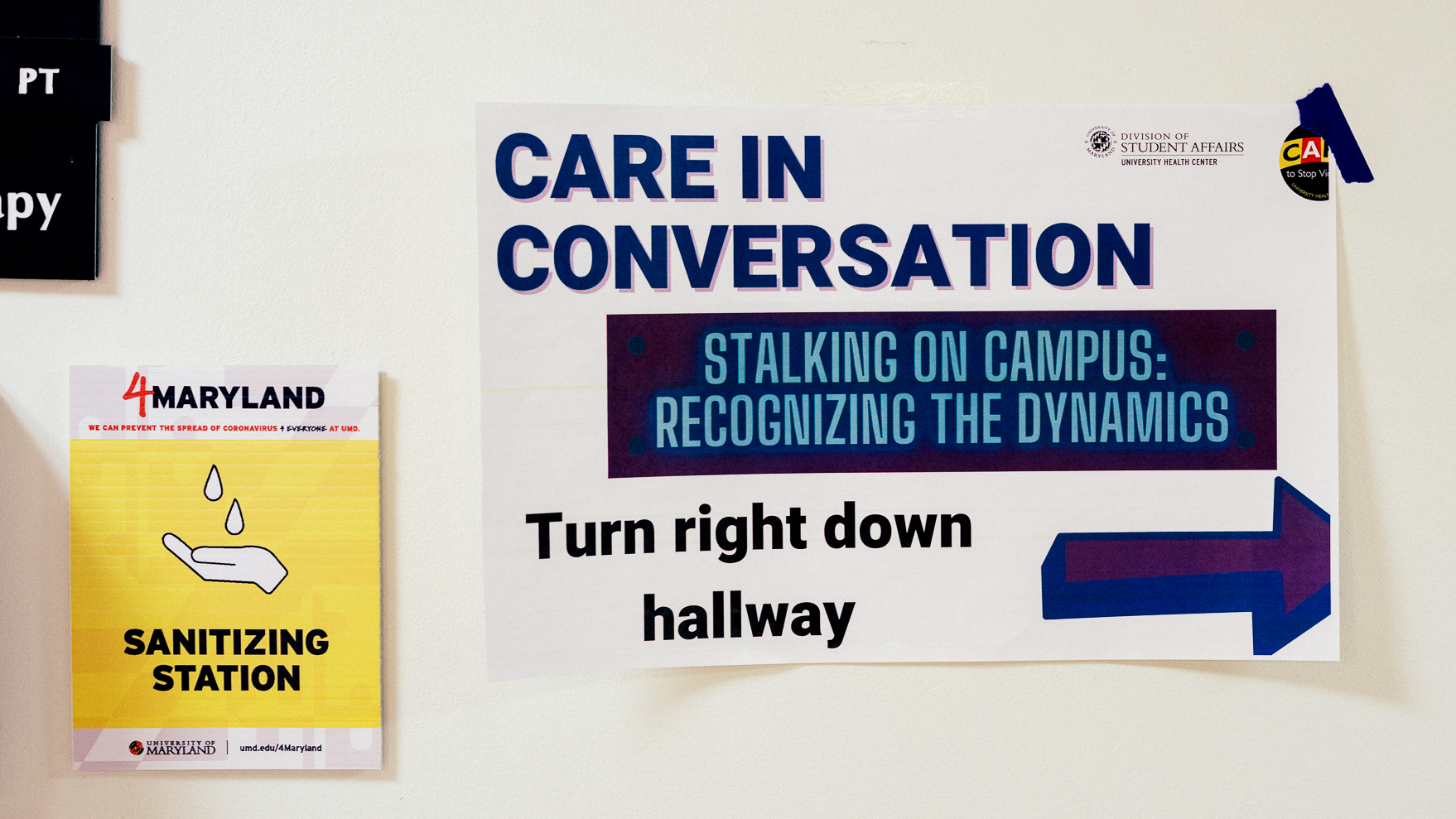By Parker Leipzig
For The Diamondback
CARE to Stop Violence held its monthly CARE in Conversation discussion on Dec. 7 to talk about stalking on the campus.
Campus Advocates Respond and Educate to Stop Violence is a confidential advocacy team that provides services to primary and secondary survivors of power-based violence.
Charlotte Sheffield, an assistant coordinator at CARE who graduated from the University of Maryland in 2017, said the CARE team chose to focus this month’s dialogue on stalking since January is Stalking Awareness Month.
“Stalking doesn’t come up in conversations about power-based violence as much, but it does impact so many people on campus,” Sheffield said. “That’s why we felt it was really important to have this conversation, especially when some of the behaviors of stalking are so normalized.”
Grace Fansler Boudreau, the coordinator for outreach and assessment in CARE, said Sheffield started the CARE in Conversation meetings last fall when the team was looking into more ways to connect with this university’s community. The discussions originally started on Zoom, but have transitioned into in-person meetings.
[College Park City Council awards $26K in educational grants to six local schools]
During this month’s conversation, Sheffield and Amelia Kumer, a junior government and politics major who is part of the CARE peer outreach program, brought up how society has normalized and even romanticized characteristics of stalking in popular TV shows such as Netflix’s You and movies such as Say Anything and 10 Things I Hate About You.
Kumer also said social media has made stalking easier and more prevalent. She said the definition of stalking needs to be changed because of how technology has made it easier to gather information on people’s personal lives.
“We discussed a lot about where do you draw the line?” Kumer said. “Where is stalking on the internet okay versus where is it harmful?”
Boudreau said she and other CARE staff members know not everyone will attend these meetings, but they still want the student body to be aware of their services and the resources available. They have a social media presence in addition to tabling on campus and providing presentations to student groups, such as at sorority and fraternity events and student government meetings.
“We can always reach more students, we can always reach more groups that we are not reaching for whatever reason,” Boudreau said. “We try to be very strategic to make sure that if there are gaps in our outreach that we work to address them.”
[Campus menstrual product drive gets 725 donations for local women’s nonprofit]
Some of the attendees brought up concerns about stalking on campus that the CARE staff members had not thought about. Kumer said one person mentioned the new Purple Line — an upcoming Metro stop on the campus — brings up extra anxiety of construction workers and other people having more access to the campus.
“I was not aware of that,” Kumer said. “So, I thought that was super interesting and relevant to the Purple Line bringing more people into campus than would normally be there.”
In addition to the monthly CARE in Conversation events, the group is planning an event in April for Sexual Assault Awareness Month. Boudreau said the outreach peers will also put on an event related to sexual violence prevention in college populations.
Boudreau said she hopes students walk away with the knowledge that the CARE office is available to aid survivors.
“Everyone plays a role in preventing power-based violence,” Boudreau said. “Everyone plays a role in creating safer communities and together, we can work to make UMD a place that is safer and healthier for the community.”



